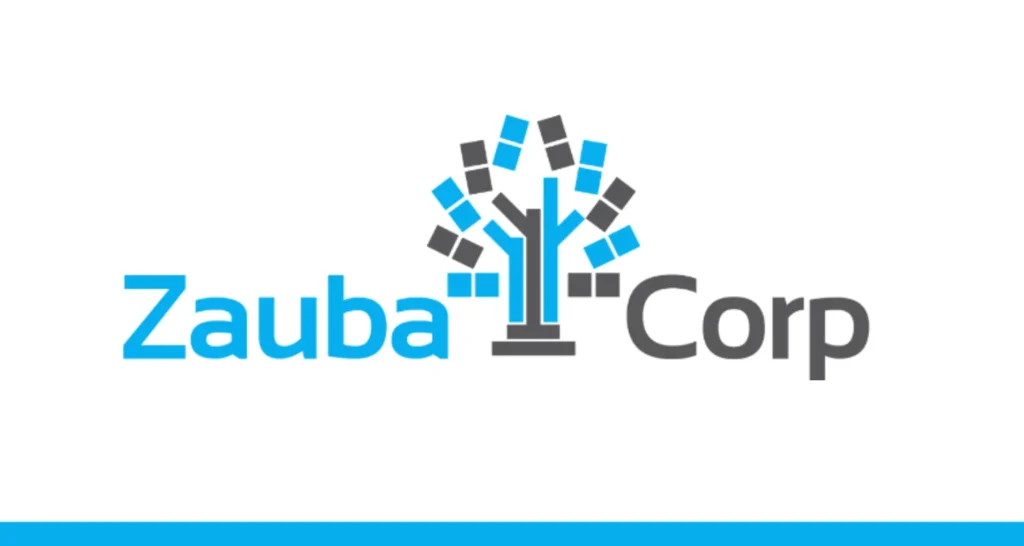Accenture Smart City is a suite of digital technologies and services designed to help cities and governments transform their operations, services, and infrastructure to meet the needs of citizens in the 21st century. From advanced analytics and automation to IoT sensors and cloud computing, accenture smart city solutions provides a comprehensive and integrated approach to urban planning, management, and innovation. With expertise in areas such as mobility, energy, public safety, and citizen engagement, Accenture Smart City helps cities become more livable, sustainable, and resilient, while also fostering economic growth and social inclusion.
The evolution of Accenture Smart City
For decades, the evolution of communications technology has laid the foundation for broad economic growth across the United States benefitting towns and cities large and small. The next generation of wireless network infrastructure will be built using small-cell networks employing 5G wireless technology. The connectivity and computing capacity unleashed by these high-speed wireless networks will bring the power of Smart City solutions to municipalities across the country.
Beyond the benefits of pervasive Smart City technology, the potential gains from the deployment process for such technology are also significant since telecom operators are expected to invest approximately $275 billion in infrastructure, which could create up to 3 million jobs and boost GDP by $500 billion.
This can transform local economies. Research has suggested that Smart City solutions applied to the management of vehicle traffic and electrical grids could produce $160 billion in benefits and savings through reductions in energy usage, traffic congestion, and fuel costs. These 5G attributes will enable cities to reduce commute times, improve public safety and generate significant smart grid efficiencies.
The full realization of the economic growth and cost savings from leveraging Smart City solutions built on 5G infrastructure will, however, depend on how robustly 5G networks are deployed locally and will require different approaches from those used in the past.
The network deployment build of 5G will involve 10 to 100 times more antenna locations than 4G or 3G. These cells are small – the size of a shoebox – and are critical not only for delivering the speed and capacity promised by this next generation of wireless but also for supporting the increased number of devices that will be connected to the network in the future.

Transforming cities and public infrastructure
With ever-rising citizen expectations, shrinking budgets and the sustainability imperative, cities globally are looking to secure better futures by embracing data, digital, and ecosystem collaboration. In parallel, the Smart City movement is scaling beyond pilots and into core infrastructure and IT budgets. Leading cities are adopting a citizen-centered ethos, using technology as an enabler to create physical and digital services fit for the 21st century.
Public infrastructure is foundational to major urban centers and communities. Yet the delivery of those projects has barely changed in half a century, creating budget leakage and operational inefficiencies, making it difficult to meet rising citizen expectations. This is driving the pivot to digital, to better manage complex portfolios and improve asset management for both new and aging infrastructure. With new mobility solutions and 5G on the horizon, new infrastructural futures are being reimagined.
Accenture 5g smart cities
As the world becomes increasingly urbanized, cities are facing unprecedented challenges in providing efficient, sustainable, and livable environments for their citizens. To address these challenges, cities are turning to technology to improve everything from transportation to public safety. One technology that is poised to have a significant impact on urban infrastructure and services is 5G.
5G is the fifth generation of wireless network technology, offering faster speeds, lower latency, and greater capacity than previous generations. This makes it an ideal platform for powering the next generation of smart city applications, which can transform how cities operate, communicate, and serve their citizens. Accenture, a global professional services firm, is at the forefront of this transformation, offering a suite of digital technologies and services called Accenture 5G Smart Cities.
Accenture 5G Smart Cities harnesses the power of 5G networks to provide innovative solutions for mobility, energy, public safety, and more. Here are some examples of how Accenture 5G Smart Cities is transforming urban infrastructure and services:

Smart Transportation: With 5G, cities can create intelligent transportation systems that use real-time data to optimize traffic flow, reduce congestion, and improve safety. For example, Accenture is working with the city of Birmingham in the UK to deploy a 5G-enabled connected vehicle platform that can detect and respond to road hazards, such as potholes and debris, in real-time.
Energy Efficiency: 5G networks can enable more efficient use of energy by providing real-time data on energy consumption and production. Accenture is working with energy companies and utilities to develop 5G-enabled smart grids that can monitor and control energy flows, optimize energy storage, and reduce carbon emissions.
Public Safety: 5G networks can enhance public safety by enabling real-time video surveillance and analytics, as well as emergency response systems. Accenture is working with the city of Dublin in Ireland to deploy a 5G-enabled public safety system that includes video analytics, gunshot detection, and facial recognition to help police respond more quickly and effectively to incidents.
Citizen Engagement: 5G networks can enable new ways of engaging with citizens, such as immersive experiences and augmented reality. Accenture is working with the city of Milan in Italy to develop a 5G-enabled platform that allows citizens to interact with public art installations using their mobile devices.
In addition to these applications, 5G networks can also enable new business models and revenue streams for cities, such as smart parking, smart lighting, and smart waste management. According to a recent report by Accenture, 5G-enabled smart city applications have the potential to generate up to $160 billion in revenue by 2026.
In conclusion
the deployment of 5G networks in urban environments is not without challenges. These networks require a dense network of small cells, which can be difficult to deploy in areas with limited space and infrastructure. Additionally, 5G networks require significant investments in infrastructure and technology, which can be a barrier for some cities and governments.
Despite these challenges, the potential benefits of 5G-enabled smart cities are too great to ignore. With its suite of digital technologies and services, Accenture is helping cities and governments overcome these challenges and realize the full potential of 5G for urban infrastructure and services. As more cities around the world embrace 5G and smart city technologies, we can expect to see a more connected, efficient, and sustainable urban environment that benefits everyone.
Building the Future: Exploring Accenture's Smart City Solutions
With the rapid advancement of technology, cities around the world are embracing the concept of smart cities to enhance the quality of life for their citizens. Among the key players in the smart city landscape, Accenture stands out for its innovative solutions that leverage the Internet of Things (IoT) and 5G technology to create a secure environment and transform urban living. In this article, we will delve into Accenture’s smart city initiatives and how they are shaping the cities of the future.
One of the key components of Accenture’s smart city solutions is the utilization of IoT devices and 5G connections. The IoT refers to the network of interconnected devices that can communicate and exchange data with each other. Accenture’s smart city solutions harness the power of IoT to collect real-time data from various sources, such as sensors, devices, and infrastructure, to enable data-driven decision-making and improve the overall efficiency of urban services. The high-speed and low-latency connectivity provided by 5G technology further enhances the potential of IoT, allowing for seamless communication and operation of devices in a smart city ecosystem.
Accenture recognizes the critical importance of cybersecurity in smart city deployments. As cities rely on interconnected devices and networks to deliver services, protecting critical infrastructure and ensuring cyber resilience become paramount. Accenture’s smart city solutions prioritize practical and holistic security measures to safeguard against cyber threats. From securing data collected from IoT devices to implementing robust authentication and encryption protocols, Accenture ensures that its smart city solutions are built on a foundation of cybersecurity best practices. This ensures that citizens’ data and privacy are protected, and the city’s critical infrastructure remains secure from cyber attacks.
Another key aspect of Accenture’s smart city solutions is their scalability and adaptability. Accenture understands that each city has unique needs and challenges, and its smart city solutions are designed to be flexible and adaptable to different urban environments. Whether it’s improving transportation systems, optimizing energy consumption, enhancing public safety, or providing better citizen services, Accenture’s smart city solutions can be tailored to the specific requirements of each city. This ensures that the solutions are practical, effective, and aligned with the city’s goals and priorities.
Accenture’s smart city initiatives are also aligned with the global trend towards 5G technology. As 5G networks are set to revolutionize the way we communicate and interact with technology, Accenture recognizes the potential of 5G in shaping the future of smart cities. By leveraging the capabilities of 5G, Accenture’s smart city solutions can unlock new possibilities, such as real-time analytics, remote monitoring, and autonomous vehicles, that can transform the way cities operate and deliver services to their citizens.
As cities around the world race to adopt 5G technology, Accenture is at the forefront of this transformation. Accenture predicts that the United States is on track to become the largest adopter of 5G by 2025, and its smart city initiatives are well-positioned to capitalize on this trend. With its innovative use of IoT devices, 5G connections, and cybersecurity measures, Accenture is helping cities build a smarter and more connected future.
In conclusion, Accenture’s smart city solutions are driving the transformation of urban living by harnessing the power of IoT and 5G technology. With a focus on cybersecurity, scalability, and adaptability, Accenture’s smart city initiatives are paving the way for more efficient, secure, and sustainable cities. As the world moves towards a more connected future, Accenture’s smart city solutions are at the forefront of this revolution, helping cities build a brighter tomorrow.













